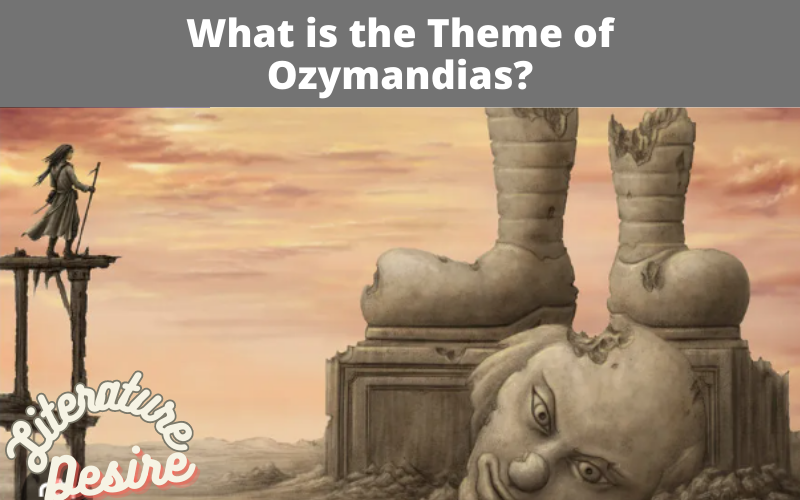In this article, we will delve into the various aspects of the theme of “Ozymandias,” analyzing its significance and impact on readers.
In the world of literature, certain poems captivate readers with their depth and profound messages.
Advertisement
One such poem is “Ozymandias,” written by Percy Bysshe Shelley in 1818. This sonnet explores the theme of human arrogance and the transient nature of power and fame.
Advertisement
What is the Theme of “Ozymandias”?
The theme of “Ozymandias” revolves around the concepts of hubris, the inevitable decline of empires, and the transient nature of human achievements. Through vivid imagery and thought-provoking metaphors, Shelley exposes the futile nature of excessive pride and power.
Advertisement
The Futility of Power and Fame
One of the central themes of this poem is the futility of power and fame. The poem tells the story of a fallen statue, once a symbol of a powerful ruler named Ozymandias.
Advertisement
However, time and the forces of nature have reduced this once-mighty monument to a pile of ruins. The theme here highlights the insignificance of human achievements in the face of eternity.
Hubris and Arrogance: Character Sketch of Ozymandias
Shelley skillfully conveys the theme of hubris and arrogance through the depiction of Ozymandias. The ruler is portrayed as an arrogant tyrant who believes his power will last forever.
The inscription on the statue,
"My name is Ozymandias, King of Kings; Look on my Works, ye Mighty, and despair!"
reveals his overbearing pride. However, the irony lies in the fact that there is nothing left to despair over. The theme emphasizes the downfall of those consumed by their own ego.
Time’s Relentless Passage
Another prominent theme in “Ozymandias” is the passage of time and its effect on human achievements.
The statue of Ozymandias, once grand and imposing, has crumbled over the years, leaving only a fragment of its former glory.
This depiction underscores the ephemeral nature of power and fame, reminding readers that everything in life is transient.
Nature’s Dominance
Nature’s dominance over human creations is a recurring motif in the poem. The vast and desolate desert, described as “boundless and bare” (line 2), serves as a stark contrast to the former magnificence of Ozymandias’ empire.
It symbolizes the ultimate power and indomitable force of nature. This theme serves as a reminder that despite our best efforts, we are mere specks in the grand scheme of the natural world.
Conclusion
In conclusion, “Ozymandias” is a poem that explores profound themes such as the futility of power and fame, the destructive nature of hubris, the passage of time, and nature’s dominance over human creations.
Through Shelley’s masterful use of imagery and metaphors, readers are invited to reflect on the transient nature of human achievements and the ultimate insignificance of pride. “Ozymandias” serves as a timeless reminder of the importance of humility and the impermanence of power.
Frequently Asked Questions
“Ozymandias” is the Greek name for the Egyptian pharaoh Ramses II. The name symbolizes the grandeur and authority associated with ancient Egyptian rulers.
The central message of “Ozymandias” is the transient nature of power and the futility of human achievements. It serves as a cautionary tale against arrogance and the belief in one’s invincibility.
Shelley employs vivid imagery throughout the poem to convey the theme of “Ozymandias.” He describes the broken statue and the vast desert, contrasting the grandeur of the past with the insignificance of the present. These visual representations evoke a sense of impermanence and decay.
The inscription on the statue serves as a powerful reminder of Ozymandias’ arrogance. It highlights his belief in his eternal power and serves as a warning against the dangers of excessive pride.
It is considered timeless because its themes of human arrogance, the passage of time, and the insignificance of power transcend historical and cultural boundaries. The poem’s universal message continues to resonate with readers across generations

